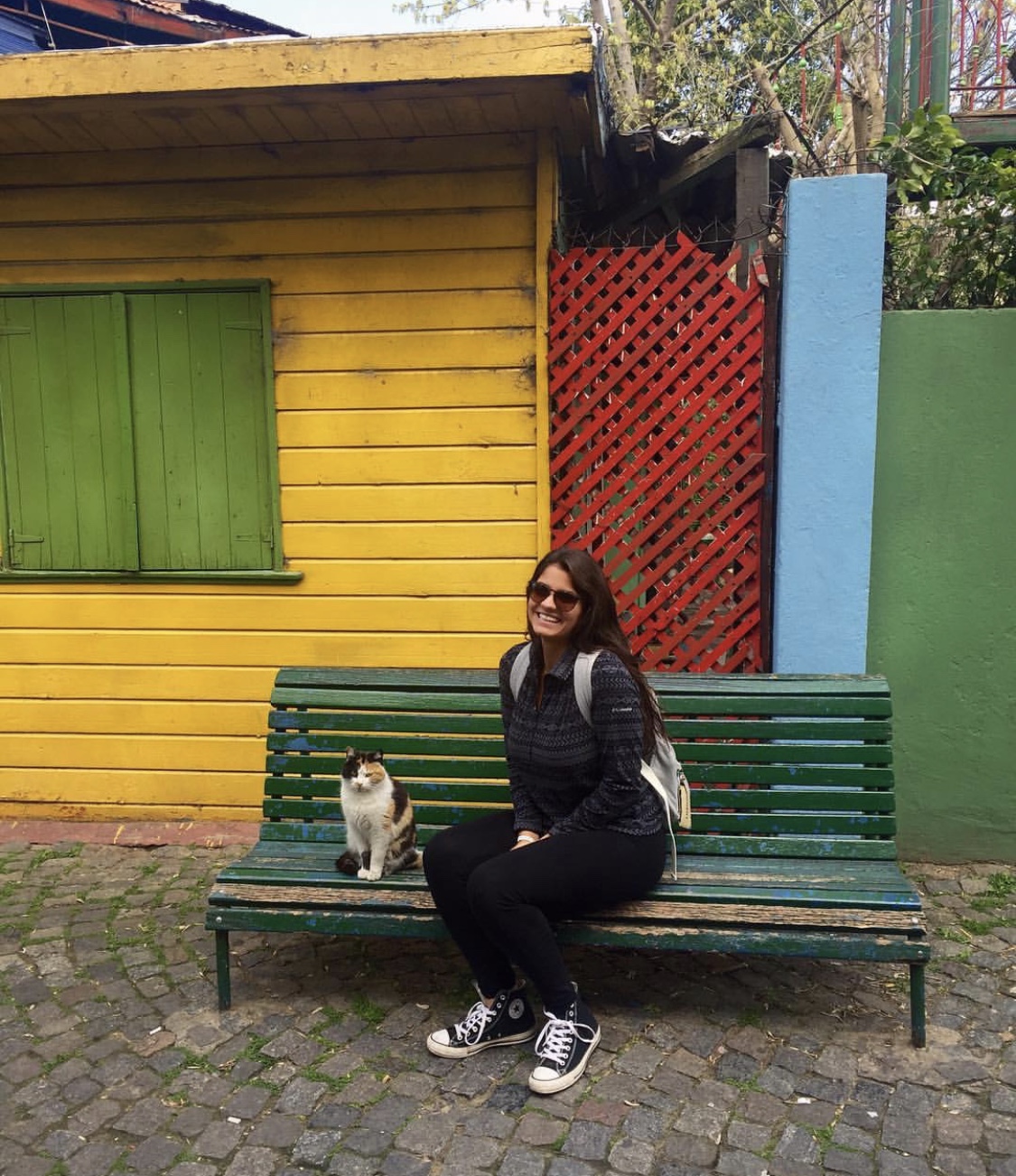
Studying abroad doesn’t always live up to the expectations.
While most Pepperdine students love their experiences, there’s a few students who struggle to click with their programs, their housing or their fellow students.
“I thought it was going to be the best experience of my life because that’s what they tell you,” said Courtney Dahl, a junior international business major who studied abroad in Lausanne, Switzerland her sophomore year.
Pepperdine is nationally recognized for its international programs, but administrators said they’ve seen interest decline in recent years and have had to work harder to make sure programs are filled. While even students who praise their overseas experience have complaints, including housing, food and their connection with fellow students, some return to campus regretting their time abroad.
The reputation of abroad and the reality
Pepperdine University offers seven locations around the world where students can study abroad for either a year, semester or summer.
A Pepp Post poll of 68 students found that most go abroad for either a year or a summer program. The No.1 reason students cited for going was just for the experience, and students reported traveling was their favorite part of studying abroad.
The Pepp Post poll asked students to rate their overall experience on a scale of one to five, five being the best. More than 80 percent rated their experience very highly, but a minority, less than 13 percent, rated their experience poorly.
Pepperdine has an extensive marketing program to attract students to study abroad. Karl Kalinkewicz, assistant director of recruitment and student development, is responsible for the marketing and events IP sponsors on campus.
“A lot of students come to Pepperdine specifically for our study-abroad programs,” Kalinkewicz said.
Students are told repeatedly that going overseas will be a life-changing experience.
The Pepp Post poll found that more than 77 percent of students thought that abroad was everything they expected, while just under 18 percent said abroad didn’t meet their expectations.
A few students complained of high expectations because of the way Pepperdine advertises the abroad programs.
Kalinkewicz said he struggles with being realistic with students. He can’t share the challenges and flaws in the abroad programs or else students may not want to go.
“We want to be realistic but I also need to sell … I’m a salesman,” Kalinkewicz said. “And that balance is the hardest thing. How do you attract people but by also being truthful at the same time and letting them know what they are getting themselves into.”
Greg Muger, director of International Programs, said students drop their abroad programs for various reasons, including health and family concerns, finances or lack of educational opportunities on the program.
“It has become more of struggle to attract students,” Muger said.
Usually 58 percent to 63 percent of first-years apply to go abroad in the fall or spring of their sophomore year, Muger said. In the last couple years, the percentage of students applying to go abroad has decreased slightly. But the number of students going abroad has stayed relatively stable because of the extensive marketing Pepperdine does.
Kalinkewicz said around 400 students enrolled to study abroad in 2016. Out of those students, around 150 students dropped from their abroad programs.
Muger said that 150 was slightly more than average. He could not share numbers on when students dropped.
Students face fines for dropping depending on what stage they are in.The minimum a student will pay to drop their abroad program is $500. The closer the program gets, the higher the fine, with a maximum of $10,450, Muger said.
Dahl experienced extreme conflict while trying to drop her program. At first she was conflicted on whether to go abroad for an entire year or just semester. The International Programs office told Dahl to sign up for a year and if she didn’t want to stay it was an easy process to return.
“Then I found out it wasn’t easy,” Dahl said. “It was quite the opposite, they try to do everything they can to make you stay.”
Students’ experiences abroad
The Pepp Post poll asked students to rate their housing, food and connection with fellow students while abroad on a scale of one to five, five being the best. The poll found that 75 percent of students had a positive housing experience abroad, but 19 percent of students rated their housing negatively. While 76 percent of students viewed the food abroad positively, around 16 percent rated food negatively.
Students were most ambivalent about the connections they made with fellow students. Around 40 percent of students indicated a so-so relationship with their peers, whereas 19 percent felt a poor connection and around 40 percent had a strong connection.
“I expected to make really close friends but never felt connected to people in my program,” said Peter Filimaua, a junior media productions major who studied in Buenos Aires, Argentina.
When abroad goes wrong
Most students said they cherished abroad as an amazing opportunity. But there are students with a different story.
Junior journalism major Mikaela Harris encourages students not to study abroad. She was enrolled to study in Buenos Aires, Argentina for a year. She decided to return after a semester. Harris had a hard time with the safety and living environment abroad.
“I couldn’t go anywhere without the fear of being robbed or assaulted,” Harris said.

Harris said she experienced harassment from locals many times, making her uncomfortable in her environment. In addition, because of the separation of students in homestays, Harris didn’t feel unified with the group. She became depressed and when she reached out to faculty wishing to leave the program and get help, they only tried to convince to her stay.
“They only cared about me as a statistic,” Harris said.
Filimaua similarly struggled in his homestay in Buenos Aires. Filimaua expected to make strong connections with the students abroad with him but instead felt very isolated from his peers. Faculty reached out to Filimaua when they realized he was unhappy in the program but instead of providing support they ensured that he wasn’t dropping the program.
“I felt forced into it,” Filimaua, who stayed for the year and was miserable, said.
If a student is thinking about dropping their program, Muger said faculty and the program director meet with them to work out their concerns. If there isn’t a viable solution, then they will work with the student to drop the program.
Filimaua said Pepperdine could fix students’ problems with abroad by putting less pressure on students to go and making it seem like every sophomore leaves and studies abroad. Some Pepp Post responses indicated two students wished they were told abroad isn’t necessary and one said they wished they had been told students didn’t have to go for a whole year.
Dahl said she too experienced little connection with the students in her program and never experienced the culture. This was a result of most students not wanting to leave the house and explore Lausanne. Traveling around the area was more expensive than students realized, a complaint others indicated on the Pepp Post poll.
“There would be students who wouldn’t leave their room for an entire week,” Dahl said.
Dahl dropped after her first semester abroad and returned to Malibu. She said she wished someone told her the potential challenges someone would experience abroad.
“If I knew what abroad was really like, I probably wouldn’t have gone,” Dahl said.
Another student perspective
Bobby Simpson, a senior international business major, swears that going abroad was the best experience of his life.
“The lessons I learned there couldn’t be found anywhere else,” Simpson said.
Similarly, Sabrina Ballard, a senior intercultural communication major, shared Simpson’s passion for studying abroad. Ballard studied abroad in Lausanne, Switzerland and said it was the best thing she has ever done.
“I couldn’t imagine my Pepperdine career in any other way,” Ballard said.
There are some students who choose not to go abroad. Senior psychology major Brooke Michaels decided to stay in Malibu her sophomore year. Because she didn’t go abroad, Michaels said she felt more connected to the Pepperdine community. At first she felt left out out of the experience but was surprised with how happy she was in Malibu.
“My friends that were abroad would tell me how hard it could be sometimes and I was glad I made the decision I did,” Michaels said.
Taylor Grisham completed the reporting for this story under the supervision of Dr. Christina Littlefield and Dr. Theresa de los Santos in Jour 241 in fall 2017. Dr. Littlefield supervised the writing of the web story.



